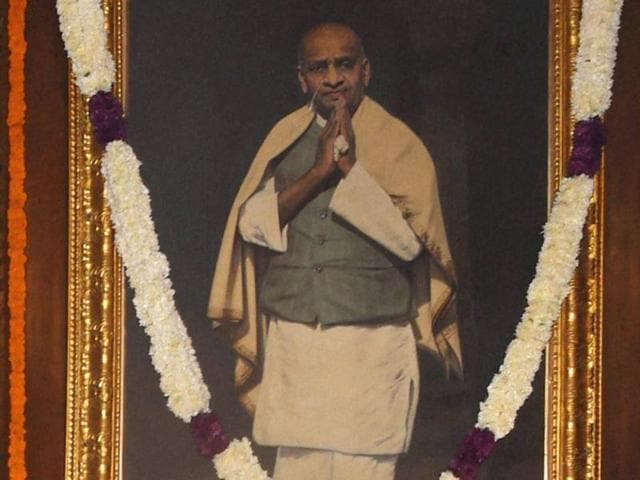Sardar Vallabhbhai Patel was the iron man who did not hanker after power
Justice has not been done in recognising Sardar Vallabhbhai Patel’s invaluable contribution and legacy in unifying India at its most critical juncture in the history
The recent commemoration of Rashtriya Ekta Diwas was to remind people of the role played by Sardar Vallabhbhai Patel in building the new India. The Manchester Guardian wrote: “Patel was not only the organiser of the fight for freedom but also the architect of the new State when the fight was over. The same man is seldom successful as a rebel and a statesman. Sardar Patel was the exception”.

The remarks he made during the Quit India Movement are ever more relevant today. He said, “We have to shed mutual bickering, shed the difference of being high or low and develop the sense of equality and banish untouchability…We have to live like the children of the same father”.
Read | On Iron Man’s birthday, Dahanu BJP unit puts up death anniversary hoardings
Unfortunately, justice has not been done in recognising his invaluable contribution and legacy in unifying the country at its most critical juncture in the history. This would naturally lead one to ask whether our school textbooks present a fair and objective account of the history and the contributions made by a stalwart like Sardar Patel? The peasant struggle spearheaded by Vallabhbhai Patel at Bardoli in Gujarat earned him the title “Sardar”.
I hold the view that had the Sardar been the country’s first prime minister the course of events would have been entirely different. This is not to belittle in any way the contribution made by Pandit Jawaharlal Nehru.
Read | PoK would be part of India if Sardar Patel had more power over J-K: CM Chouhan
Apart from achieving the integration of various princely states, he was also instrumental in India establishing the two crucial civil services — the Indian Administrative Service and the Indian Police Service. Thanks to his vision for a “steel frame” in the country’s post-Independence period, the all India services not only provide an overarching administrative and security framework to the Indian polity, but also play a vital role in national integration. During constituent assembly debates, he opposed reservation on communal lines.
On the eve of Independence in 1946, when 12 out of 15 Pradesh Congress Committees wanted to elect Patel as Congress president, Gandhiji advised him to withdraw in favour of Nehru although the latter was not nominated by a single committee. Patel heeded Gandhi’s advice and withdrew his nomination. Whoever became Congress president at that time would have been the natural choice for becoming the country’s first prime minister. This showed that Sardar Patel was not only large-hearted and also did not hanker after power.
Read | Diwali, Sardar Patel and more: What Modi said in Mann Ki Baat address
Contrast the behaviour of Patel with the present-day trend of political parties trying to adopt short-term measures, including pandering to the interests of caste, creed, religion and region solely for the sake of power.
M Venkaiah Naidu is minister for urban development and information and broadcasting
The views expressed are personal





